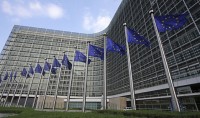EU Considers Technology Updates for Next Draft of the AI Act
April 25, 2023
The European Union, which has been working on artificial intelligence legislation for the past two years, is playing last minute catch-up with rapidly evolving technology as it retools a final draft law that can be adopted, possibly by the end of the year. While the European Council in December thought it had completed its framework in all but the details, that version largely deferred attaching specific rules to generative AI, which having since exploded, has triggered a movement among member states to add those guardrails along with rules for general purpose AI.
Romanian MEP Dragos Tudorache, co-leader of the AI Act’s scientific reporting initiative, tells TechCrunch the bloc is leaning toward a three-tiered approach: “one to address responsibilities across the AI value chain; another to ensure foundational models get some guardrails; and a third to tackle specific content issues attached to generative models, such as the likes of OpenAI’s ChatGPT.”

The current thinking is one of the three layers would apply to any type of generative AI — “whether big or small; foundational or non foundational.”
Level one would address the responsibilities of those who license models, as well as those who purchase licenses to create a product. Level two would deal with transparency, explaining the model’s training, testing and the steps taken to ensure it is free from bias. Level three would focus on generative AI — meaning a subset of general purpose AIs (GPAIs), or foundational models.
Lawmakers “are taking the view these tools need even more specific responsibilities; both when it comes to the type of content they can produce (with early risks arising around disinformation and defamation); and in relation to the thorny (and increasingly litigated) issue of copyrighted material used to train AIs,” reports TechCrunch.
“A group of 12 lawmakers are working on the European Union’s AI Act, which they describe as ‘a risk-based legislative tool, meant to cover specific high-risk use-cases of AI.’ But as they worked on the bill they reached a ‘conviction that we also need a complementary set of preliminary rules for the development and deployment of powerful general purpose AI systems that can be easily adapted” to various use cases, writes The Register.
Meanwhile, representatives from Google and Microsoft are said to be lobbying EU lawmakers for a regulatory carve-out for generative AI, an approach that is getting pushback from artists.
Reuters reports that “42 German associations and trade unions representing more than 140,000 authors and performers” last week urged the European Union to bolster the draft AI Act to protect copyrighted work from cannibalization by training models.
That joint letter came days after AI-focused EU members called on President Biden and European Commission president Ursula von der Leyen to convene a global leadership summit focused on controlling the development of advanced AI, according to Reuters.
Related:
Factbox: Governments’ Efforts to Regulate AI Tools, Reuters, 4/20/23
Silicon Valley Faces UK Crackdown as Government Unveils Tech Law, Bloomberg, 4/24/23

No Comments Yet
You can be the first to comment!
Leave a comment
You must be logged in to post a comment.